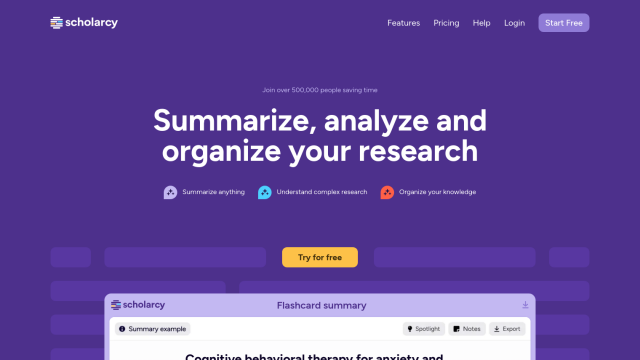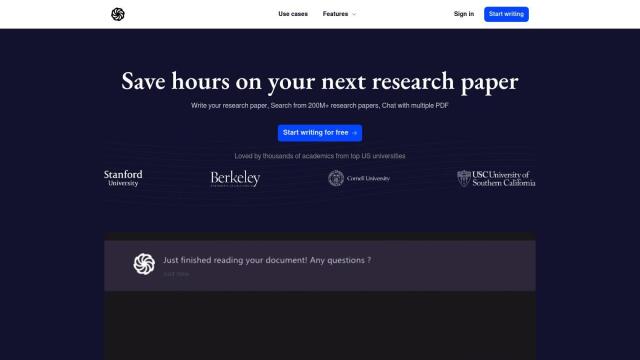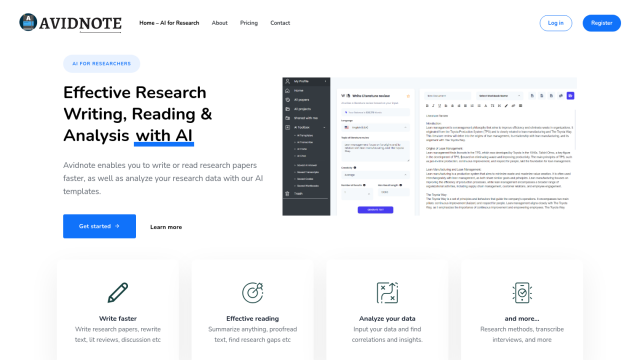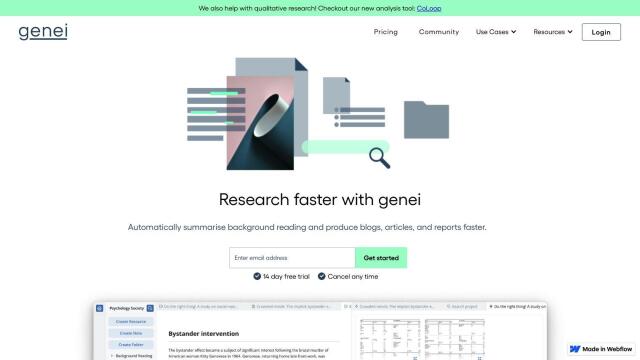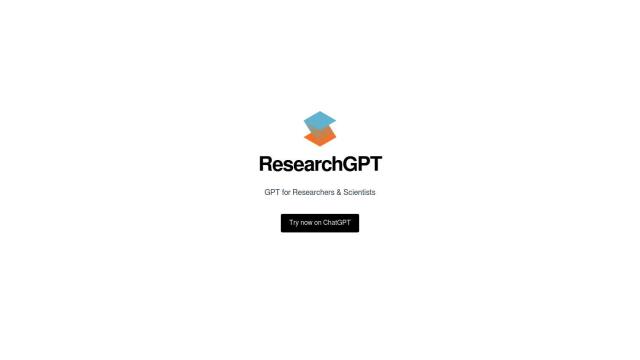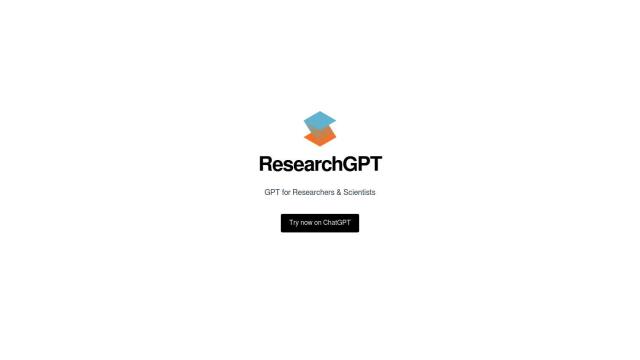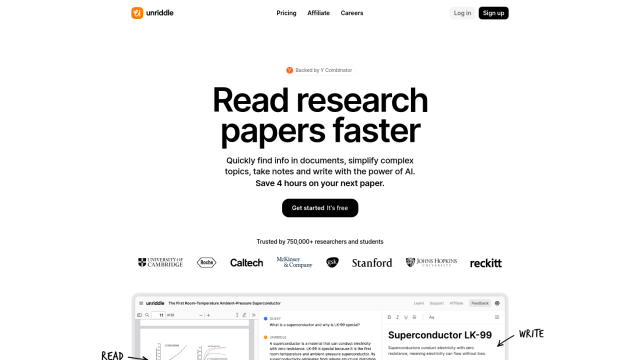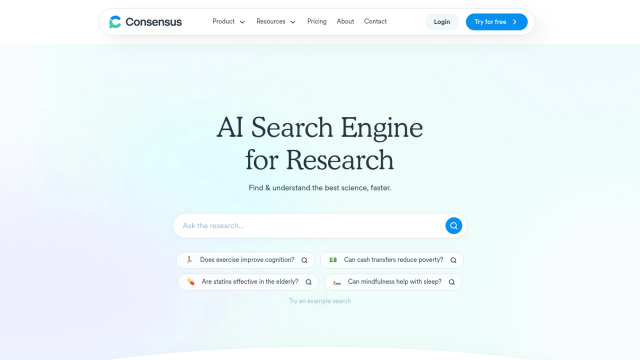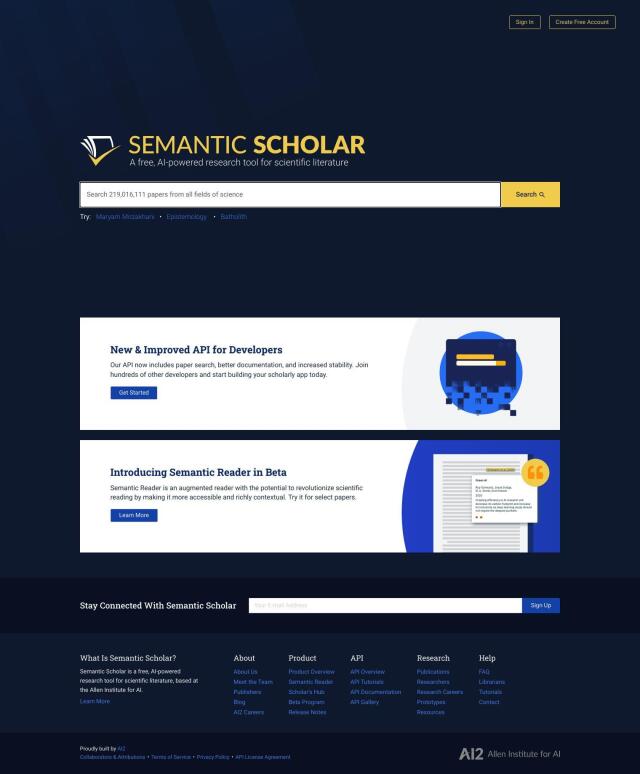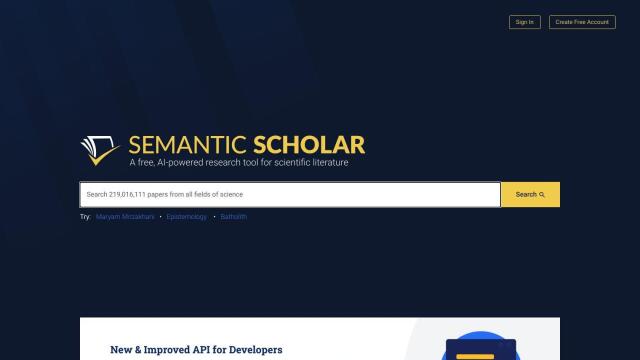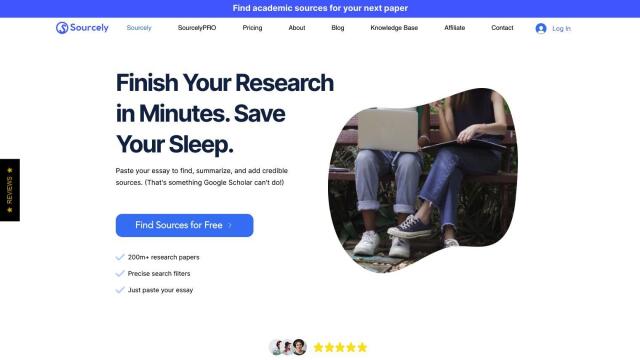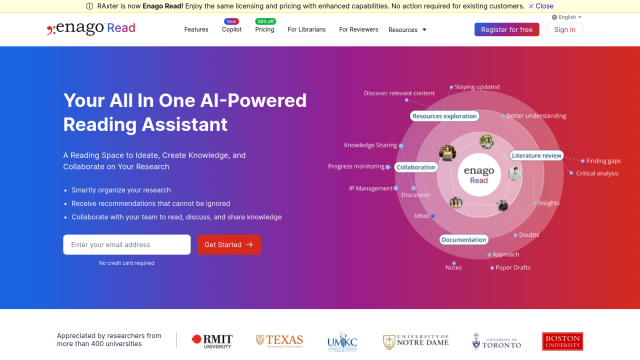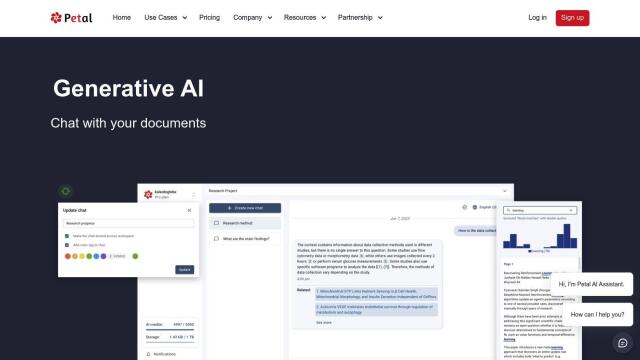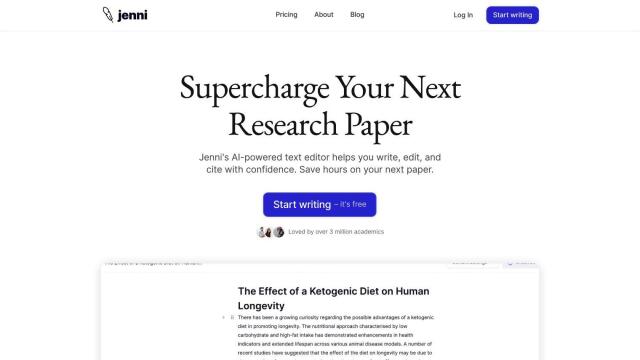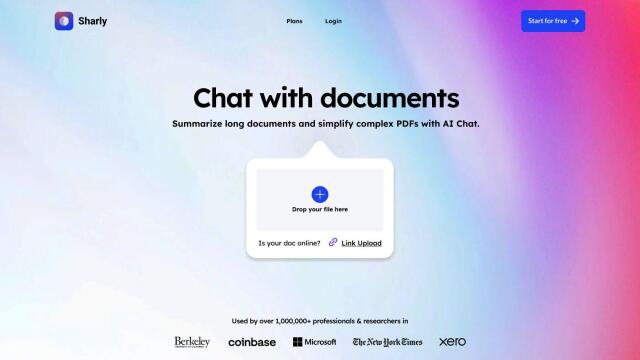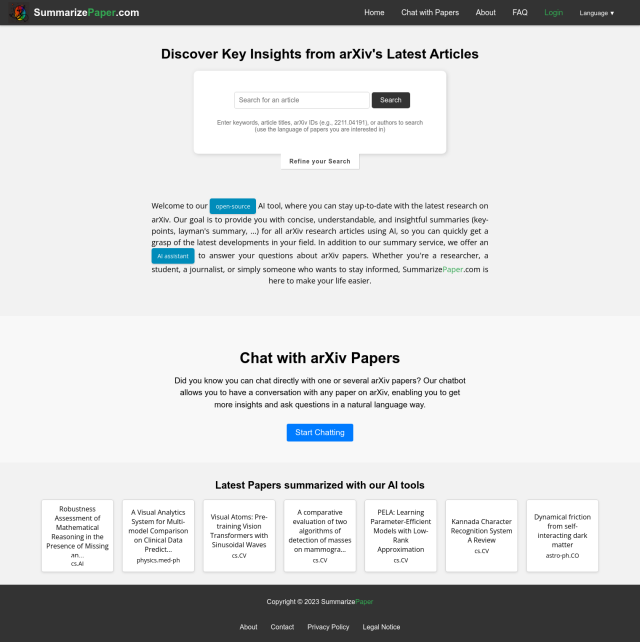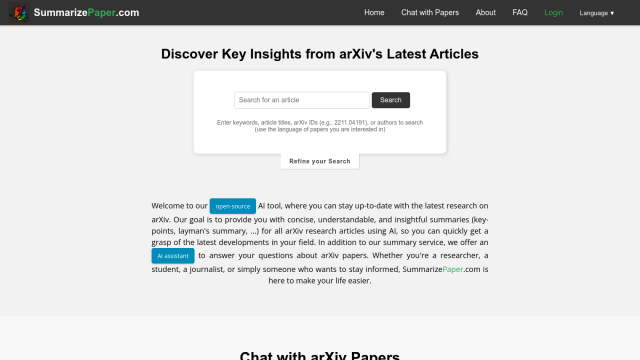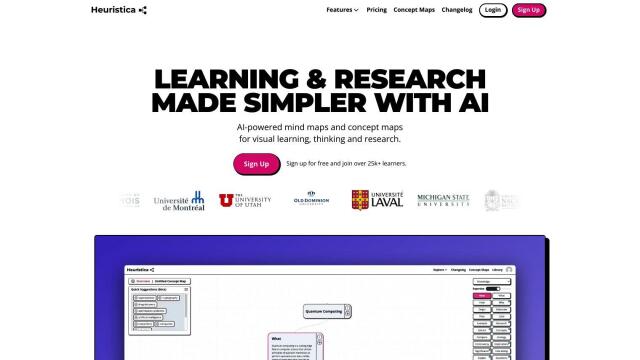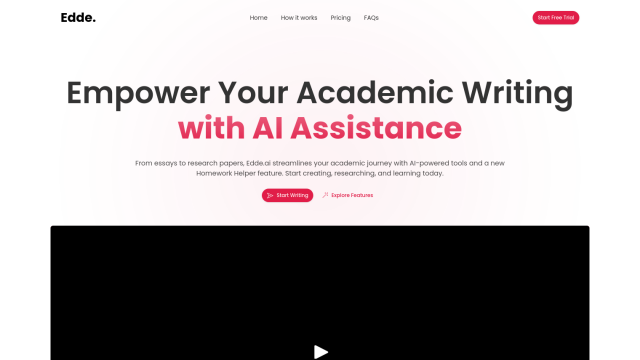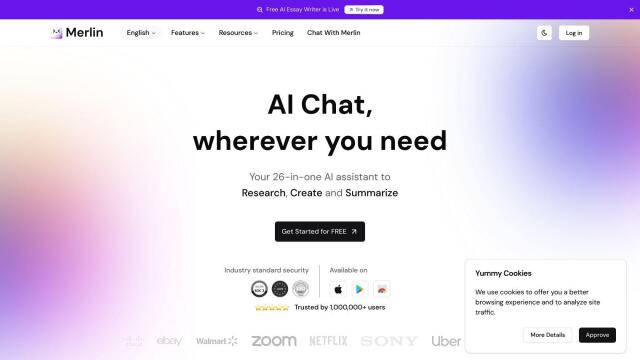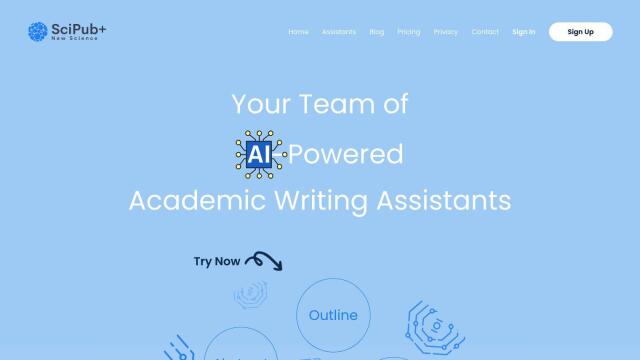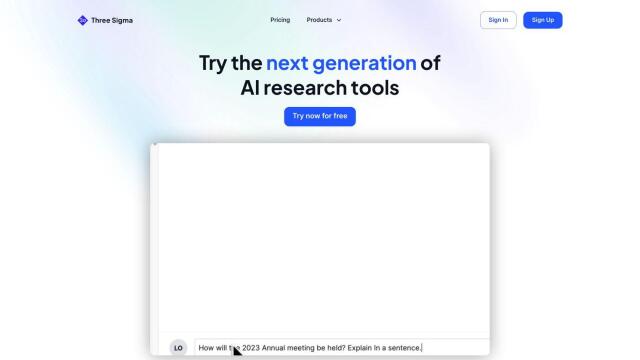Question: How can I automate the process of synthesizing information from multiple sources for my research?

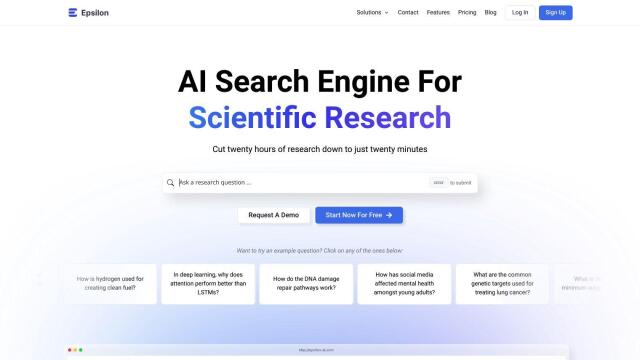
Epsilon
If you want to automate the process of synthesizing information from multiple sources for your research, there are a number of AI-powered tools to do so. Epsilon is an AI-powered search engine that can speed up scientific discovery by finding relevant citations, summarizing content and synthesizing insights from more than 200 million academic papers. It includes features like Investigate for summarized answers, Search for organizing publications, Validate for extracting key information, and Synthesize to create detailed summaries and search across libraries.


Elicit
Another good option is Elicit, which lets you quickly find, summarize and extract data from more than 125 million academic papers. You can search for papers, extract data into formatted tables, identify themes and even converse with the content of papers. Elicit is good for empirical subjects like biomedicine and machine learning, and it can be used for tasks like systematic reviews and meta-analyses.
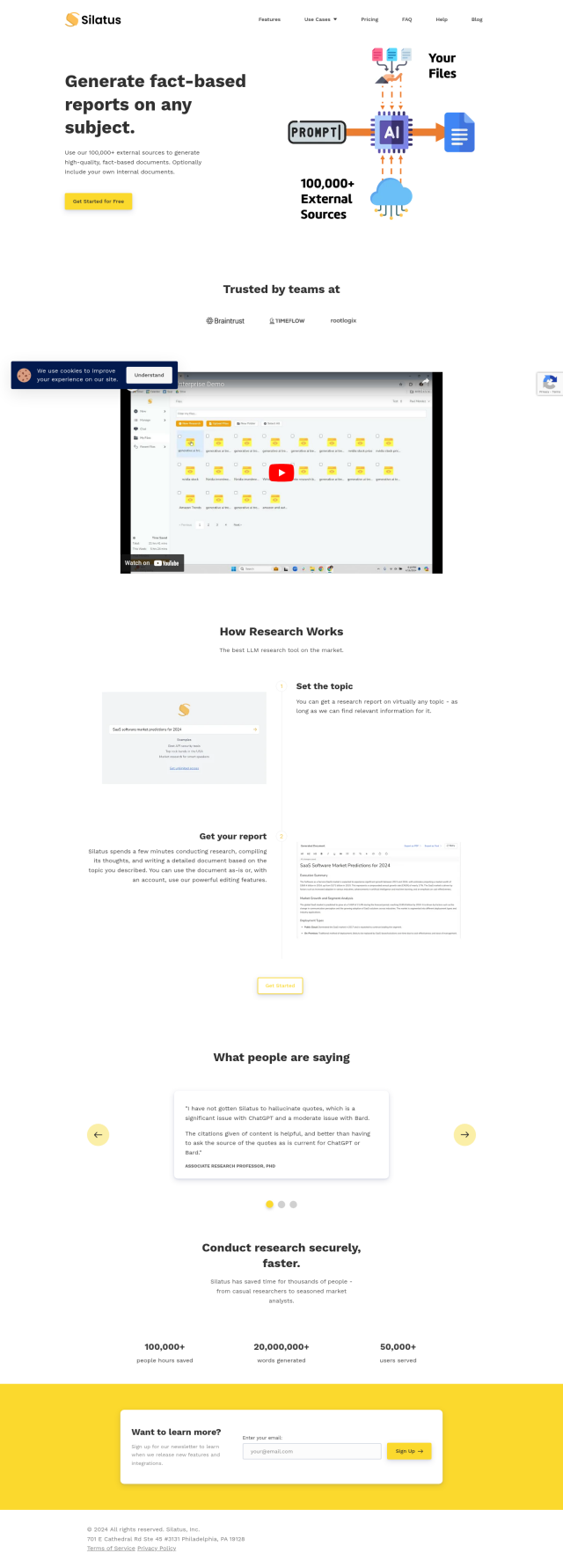
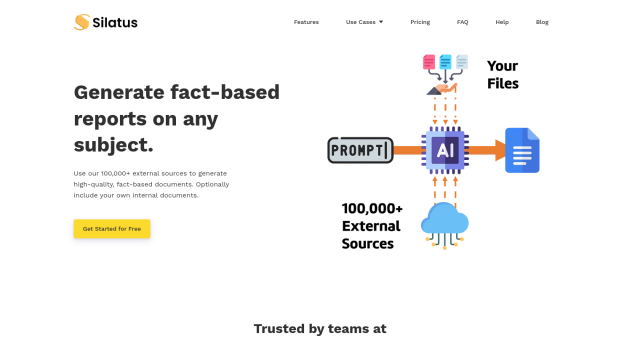
Silatus
If you need detailed, fact-based reports, Silatus combines information from more than 100,000 external sources into authoritative documents. It has flexible research queries, secure file uploads, customizable document templates and powerful automations, making it good for analysts and researchers who need to generate detailed reports quickly.

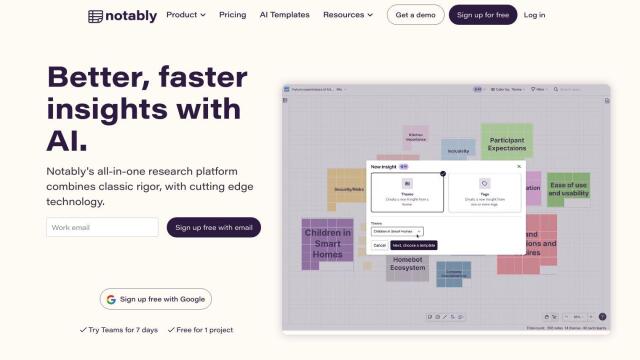
Notably
Finally, Notably is a full-fledged platform for synthesizing insights from a lot of data. With AI-powered templates, instant analysis and a multi-view workspace, Notably streamlines data analysis and saves you time. It's good for a variety of research areas, including academic research, product research and market research.

